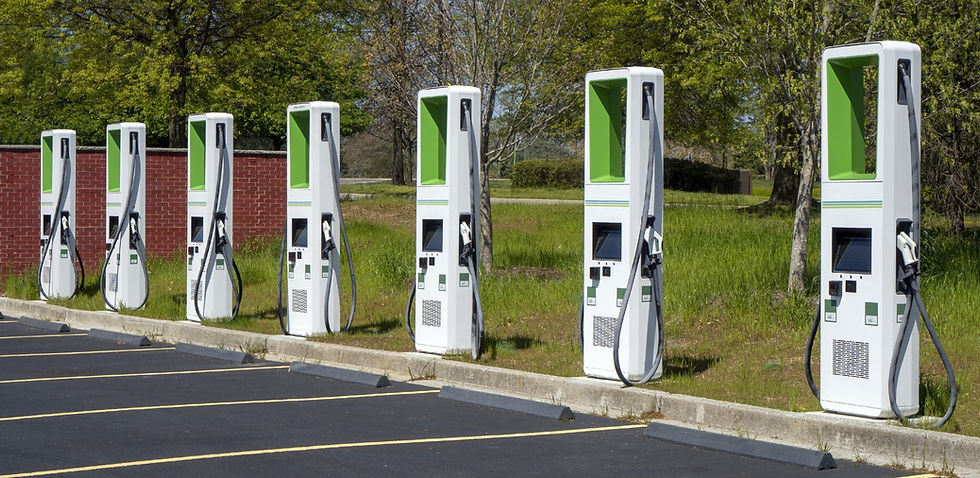The top 10 strategies for managing facilities effectively.
- operations481
- Nov 7, 2024
- 8 min read
Updated: Mar 10
Facilities management is at the heart of any successful organisation. It involves a myriad of responsibilities ranging from maintaining the physical infrastructure to ensuring the safety and comfort of the people within it. A well-managed facility can significantly enhance productivity and employee satisfaction, while also reducing operational costs. Whether you're a seasoned facilities manager or just stepping into this dynamic career path, mastering the art of effective facilities management can set you apart in the industry.
Have you ever wondered how some facilities seem to run like a well-oiled machine, while others struggle with constant hiccups and inefficiencies?
Key Takeaways
Facilities managers are the linchpins of building operations, orchestrating everything from maintenance to security
Embracing technology can revolutionise facilities management, offering predictive insights and automating routine tasks
Sustainable practices not only benefit the environment but also cut costs and improve workplace well-being
Budgeting and compliance are crucial for maintaining a facility's financial health and legal standing
Future trends like smart building technologies and AI will reshape the landscape of facilities management
Understanding the Role of Facilities Management
Facilities management is the backbone of any thriving business environment. It encompasses the comprehensive management of buildings and facilities, aiming to create an optimal workplace for all occupants. Facilities managers are tasked with a wide array of responsibilities that ensure the seamless operation of an organisation's physical assets. From overseeing daily operations to implementing strategic improvements, these professionals play a vital role in the success of any business.
Facilities managers wear many hats, primarily focusing on the coordination of maintenance, security, and cleaning services. Imagine the last time you walked into a building and everything was immaculate, from the gleaming floors to the perfectly functioning lifts. That's the handiwork of a facilities manager who ensures that every aspect of the building runs smoothly. By negotiating contracts with service providers, facilities managers secure the best possible deals, balancing quality with cost-effectiveness.
Effective communication is another cornerstone of facilities management. Facilities managers must engage with various stakeholders, from employees to external vendors, addressing any concerns promptly and efficiently. This communication is crucial not only for resolving immediate issues but also for fostering a collaborative environment that supports the organisation's goals. Facilities managers thus act as the bridge between the physical environment and the people who inhabit it, enhancing organisational productivity and employee satisfaction.
Importance of Technology & apps in Facilities Management
In today's fast-paced world, technology is revolutionising the way facilities are managed. Advanced software solutions and IoT devices are transforming facilities management into a highly efficient and data-driven practice. With these tools, facilities managers can monitor and control operations with unprecedented precision, ensuring that the infrastructure supports the business's needs effectively.
Software solutions streamline facility operations by automating routine tasks and providing real-time insights into asset performance. This technology reduces the need for manual labour, minimising the risk of human error. Imagine a scenario where a facilities manager can remotely adjust the temperature of the entire building or receive instant alerts about equipment malfunctions. These capabilities are now a reality, thanks to technological advancements.
The Internet of Things (IoT) is another game-changer, offering facilities managers the ability to collect real-time data from various devices and systems. This data empowers them to make informed decisions about maintenance schedules, resource allocation, and energy usage. Predictive analytics further enhances this decision-making process, allowing facilities managers to anticipate maintenance needs and prevent costly downtime. Technology also facilitates seamless communication and collaboration across teams, breaking down silos and improving overall performance.
Implementing Sustainable Practices in Facilities
Sustainability is no longer a buzzword; it's a necessity. Implementing sustainable practices in facilities management not only helps the environment but also leads to significant cost savings and improved workplace conditions. Facilities managers are at the forefront of this movement, championing initiatives that reduce energy consumption and promote eco-friendly practices.
One of the most effective ways to achieve sustainability is through energy reduction. Facilities managers can conduct energy audits to identify inefficiencies and implement improvements that lower operational costs. For instance, upgrading to energy-efficient lighting or optimising HVAC systems can yield substantial savings. Furthermore, promoting recycling and waste reduction initiatives minimises the environmental impact of facility operations.
Renewable energy sources, such as solar panels, play a key role in a facility's sustainability goals. By harnessing the power of the sun, facilities managers can reduce reliance on non-renewable energy sources, contributing to a net-zero carbon footprint. Moreover, sustainable design principles create healthier work environments, enhancing the well-being and productivity of occupants. A well-lit, naturally ventilated workspace can make a world of difference in employee satisfaction and performance.
Budgeting and Cost Management for Facilities
Budgeting and cost management are critical components of effective facilities management. Facilities managers must navigate the financial intricacies of maintaining a building, ensuring that resources are allocated wisely and expenses are kept in check. A well-thought-out budget allows facilities managers to plan for both current needs and future investments, supporting the long-term success of the organisation.
Tracking spending trends is essential for identifying cost-saving opportunities. By analysing financial data, facilities managers can pinpoint areas where expenditures can be reduced without compromising quality. Regular financial reviews are crucial for staying on budget and adapting to changing circumstances. Whether it's adjusting to unexpected repairs or reallocating funds for a new project, facilities managers must be agile and strategic in their financial planning.
Negotiating contracts with service providers is another area where facilities managers can maximise value. By securing favourable terms and rates, facilities managers can achieve significant savings. Accurate forecasting is key to anticipating future expenditures and avoiding financial surprises. Facilities managers who excel in cost management not only support the organisation's bottom line but also create a stable financial foundation for future growth.
Compliance and Regulations in Facilities Management
Navigating the complex web of compliance and regulations is a fundamental aspect of facilities management. Facilities managers must stay abreast of legal requirements and industry standards to protect occupants and avoid costly penalties. By ensuring compliance, facilities managers safeguard the health and safety of everyone within the building while maintaining operational efficiency.
Regular audits and inspections are vital for identifying compliance gaps and areas for improvement. Facilities managers must develop and implement policies that align with legal requirements, ensuring that the organisation operates within the boundaries of the law. Continuous training and education are essential for keeping facilities managers updated on regulatory changes and best practices.
Health and safety regulations are paramount in facilities management. Facilities managers must ensure that all safety protocols are adhered to, from fire safety measures to emergency evacuation plans. By prioritising safety and efficiency, facilities managers create a secure environment that fosters productivity and peace of mind for all occupants.
Efficient Maintenance Strategies for Facilities
Maintenance is the lifeblood of facilities management. Effective maintenance strategies not only prolong the lifespan of assets but also prevent unexpected breakdowns that can disrupt operations. Facilities managers must adopt a proactive approach, prioritising tasks based on urgency and impact to ensure that the building remains in optimal condition.
Preventive maintenance is a cornerstone of efficient maintenance strategies. By scheduling regular inspections and servicing, facilities managers can identify potential issues before they become major problems. This approach reduces the likelihood of costly repairs and extends the lifespan of equipment and infrastructure. A well-organised maintenance schedule ensures that repairs are carried out promptly, minimising downtime and maintaining operational continuity.
Technology plays a pivotal role in tracking maintenance activities and improving efficiency. Facilities managers can use software solutions to monitor maintenance tasks, allocate resources, and track performance metrics. Collaboration with skilled technicians is also essential for executing maintenance strategies effectively. Facilities managers must work closely with technical teams to ensure that maintenance tasks are carried out to the highest standards.
Enhancing Safety and Security in Facilities

Safety and security are paramount in facilities management. Facilities managers must implement comprehensive security protocols to protect occupants and assets from potential threats. By conducting regular risk assessments, facilities managers can identify vulnerabilities and implement corrective measures to mitigate risks.
Access control systems are a crucial component of facility security. By restricting entry to authorised personnel only, facilities managers can prevent unauthorised access and enhance overall security. Emergency preparedness plans are also essential for ensuring that facilities managers are ready to respond to crises effectively. Regular training and drills prepare staff to handle emergencies confidently and efficiently, reducing the impact of incidents on the organisation.
Facilities managers must also prioritise health and safety measures to create a secure work environment. This includes implementing fire safety protocols, conducting regular safety inspections, and ensuring that all safety equipment is in working order. By fostering a culture of safety, facilities managers contribute to the well-being and productivity of all occupants.
Future Trends in Facilities Management
The future of facilities management is bright and full of exciting possibilities. Emerging trends and technologies are set to reshape the industry, offering new opportunities for efficiency and sustainability. Facilities managers who embrace these changes will be well-positioned to lead their organisations into the future.
Smart building technologies are revolutionising facilities management by enhancing efficiency and sustainability. These technologies enable facilities managers to monitor and control building systems in real-time, optimising energy usage and reducing costs. Data analytics is another game-changer, providing facilities managers with valuable insights that drive informed decision-making processes.
The integration of AI and machine learning is set to transform facilities management further. These technologies can optimise operations, predict maintenance needs, and improve overall performance. Remote monitoring capabilities will also allow facilities managers to oversee multiple sites seamlessly, enhancing operational efficiency and reducing travel costs.
A focus on employee experience will shape the future of facilities management, prioritising comfort and well-being. Facilities managers must design workspaces that support collaboration, creativity, and productivity, catering to the diverse needs of a modern workforce. By embracing these trends, facilities managers can create environments that foster innovation and success.
In conclusion, effective facilities management is a multifaceted discipline that requires a strategic approach and a deep understanding of various elements. From embracing technology to implementing sustainable practices, facilities managers play a crucial role in shaping the success of an organisation. By focusing on safety, compliance, and cost management, facilities managers can create environments that support growth and innovation.
What steps will you take to elevate your facilities management strategy and stay ahead of the curve in this ever-evolving field?
To learn more about how Van Stock Pro can manage everything mentioned above, visit our application page.
Frequently Asked Questions
What is the main role of a facilities manager?
A facilities manager is responsible for overseeing the maintenance, security, and overall functioning of a company's buildings and grounds. They ensure that the physical environment meets the needs of employees and visitors while also managing budgets and resources efficiently.
What are the four main functions of a facility manager?
The four main functions of a facility manager are planning, organizing, leading, and controlling. These functions involve developing strategies for effective maintenance, allocating resources, managing staff, and monitoring performance to ensure that the facilities run smoothly and efficiently.
What is facilities management an explanation?
Facilities management is the practice of coordinating and managing the physical environment of a business to ensure that it supports the organization's objectives. This includes overseeing maintenance, security, cleaning, and other essential services to create a safe, functional, and comfortable working environment for employees and visitors.
What are the four elements of facilities management?
The four key elements of facilities management are people, processes, places, and technology. Facilities managers must effectively manage these elements to optimize the performance of the physical environment and support the overall goals of the organization. By focusing on these key areas, facilities managers can enhance productivity, efficiency, and employee satisfaction within the workplace.










Comments